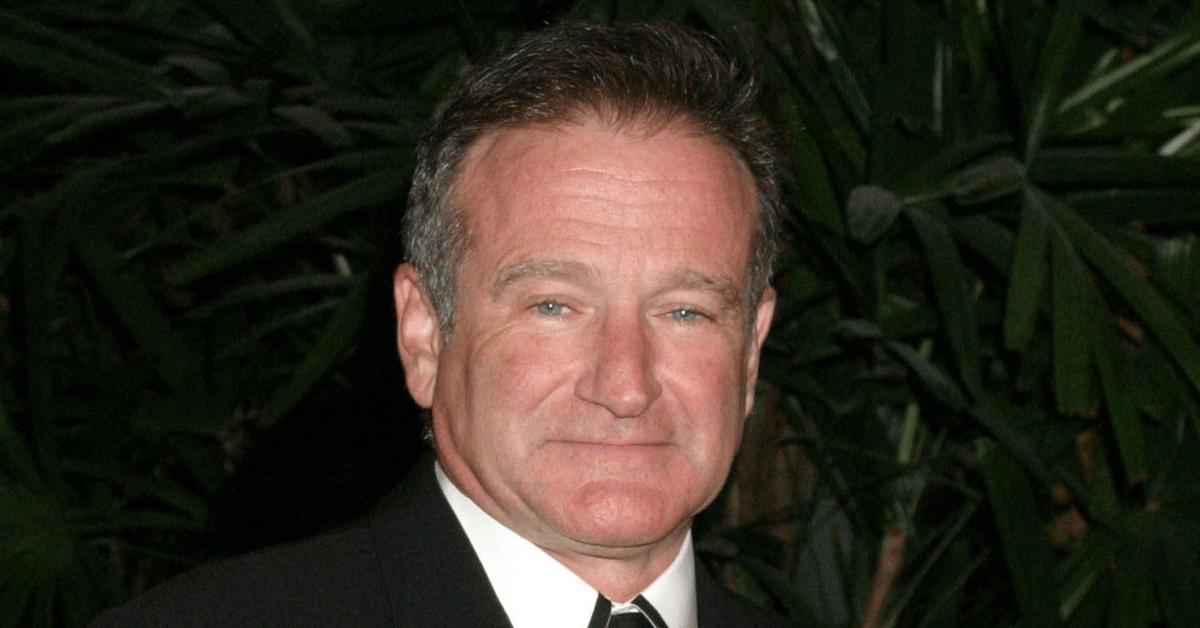EXCLUSIVE: Robin Williams' Paranoid Final Days — Hollywood Icon's Undiagnosed Lewy Body Dementia Revisited 11 Years After His Death by Suicide

Robin Williams was diagnosed with Lewy body dementia after he committed suicide on August 11, 2014.
Aug. 11 2025, Published 7:00 p.m. ET
Robin Williams' inner circle recalled how the beloved comedian's final days were filled with pain and paranoia 11 years after his death, RadarOnline.com can reveal.
Fans around the world were left stunned and heartbroken after Williams took his own life at age 63 on August 11, 2014.
An autopsy later revealed the Good Will Hunting star suffered from Lewy Body dementia (LBD), a progressive brain disease that can result in cognitive, motor, and behavioral issues.
Williams' Paranoia Exposed

An autopsy revealed Williams suffered from Lewy body dementia at the time of his death.
Years later, William's family and friends said the diagnosis helped explain the drastic changes in the Mrs. Doubtfire star's mood during his final months alive.
A longtime pal said: "At first, he was diagnosed with Parkinson's. But Robin's behavior began to become more and more erratic and bizarre."
Williams' last days were tragically spent in a paranoid frenzy, which included him researching drugs online, convinced he was suffering from something other than Parkinson's, and fixating over his designer watches being stolen.
Memory Issues

Makeup artist Cherri Minns recalled Williams sobbing on set after forgetting his lines.
According to author Dave Itzkoff, Williams' cognitive decline was on display while filming Night at the Museum: Secret of the Tomb, during which he would forget his lines and cry uncontrollably out of frustration.
Makeup artist Cherri Minns told the author: "He was sobbing in my arms at the end of every day. It was horrible.
"I said to his people, 'I'm a makeup artist. I don't have the capacity to deal with what's happening to him.'"
Minns claimed during one of his breakdowns, Williams sobbed and told her: "I don't know how anymore. I don't know how to be funny."

Williams' widow, Susan Schneider, said she noticed his health start to decline in 2013.
William's widow, Susan Schneider, also opened up when she first noticed signs her husband's health was failing. Schneider initially became worried for Williams in 2013, two years after they tied the knot in 2011.
Schneider recalled how William was taking medication for anxiety and depression and then started experiencing extreme stomach pain, had difficulty sleeping, suffered vision issues, paranoia, and "delusional looping."
She said the symptoms were being treated as "satellite issues" rather than a separate neurological cause, which added to frustrations.
Plans For Additional Testing

Williams took his own life a week before he was set to go to a neurocognitive testing facility.
She explained: "It was very out of character for Robin to be so paranoid. And that was the start of this 10-month drumbeat of increasing symptoms, and the thing with LBD is the symptoms don't come all at once – they change. So they're incredibly confusing to the patient and caregiver."
As the symptoms worsened, Williams and Schneider decided he would go to a neurocognitive testing facility.
Tragically, Williams took his life a week before their planned visit.
Schneider said: "I think he didn't want to go. I think he thought, 'I'm going to get locked up and never come out.'"

Schneider also hit back at "misconceptions" surrounding William's suicide, including claims he relapsed and began using drugs and alcohol again after a brief stint at a rehab facility.
She said the rumors represent "how we as a culture don’t have the vocabulary to discuss brain disease in the way we do about depression."
William's widow added: "Depression is a symptom of LBD, and it's not about psychology – it's rooted in neurology. His brain was falling apart."



